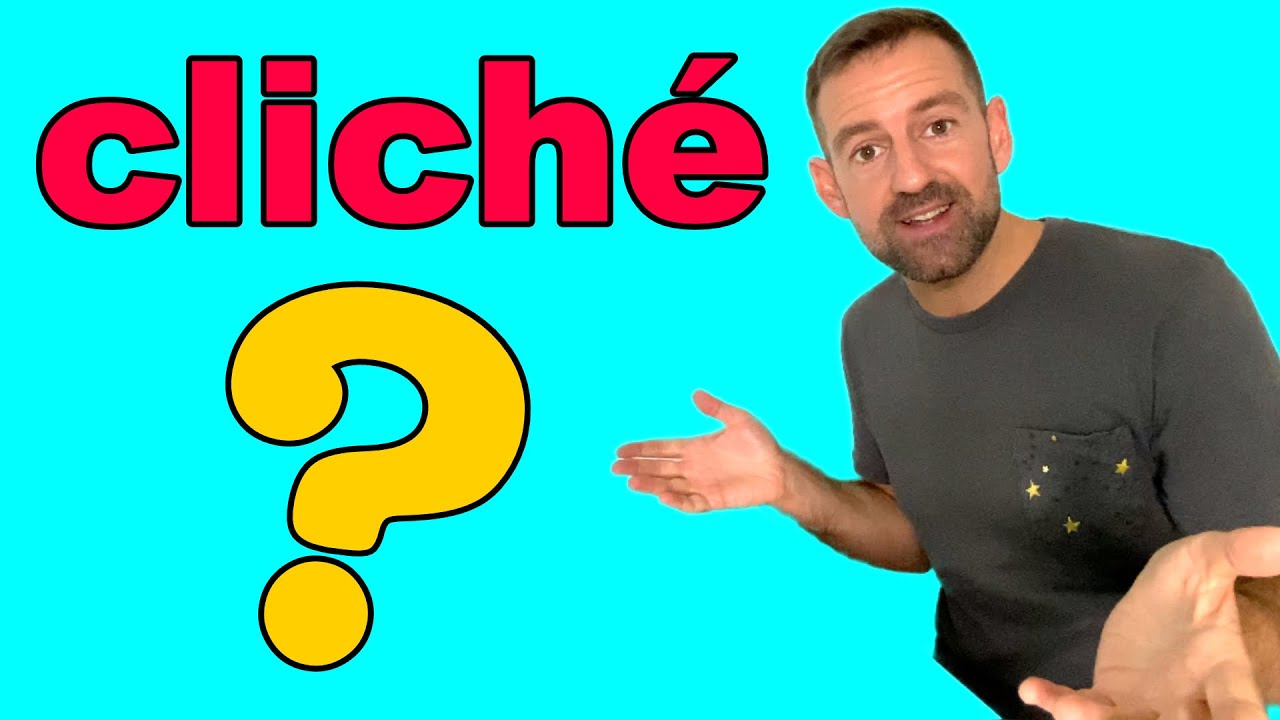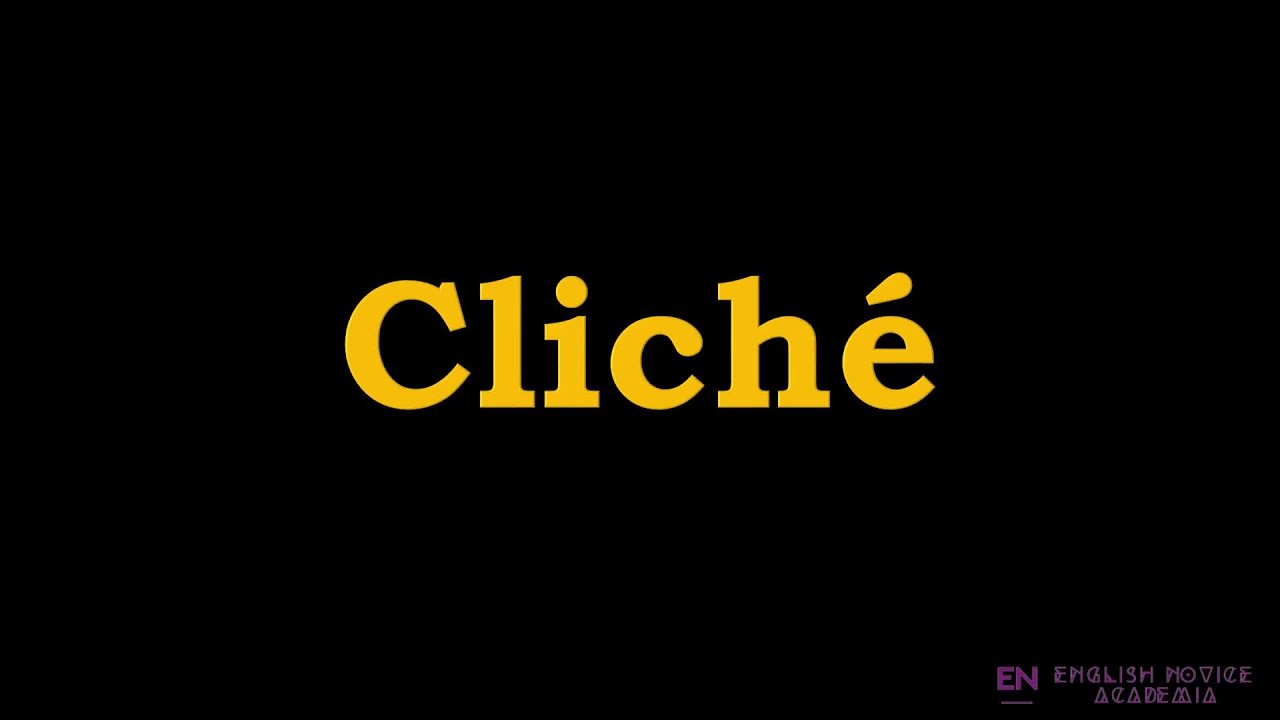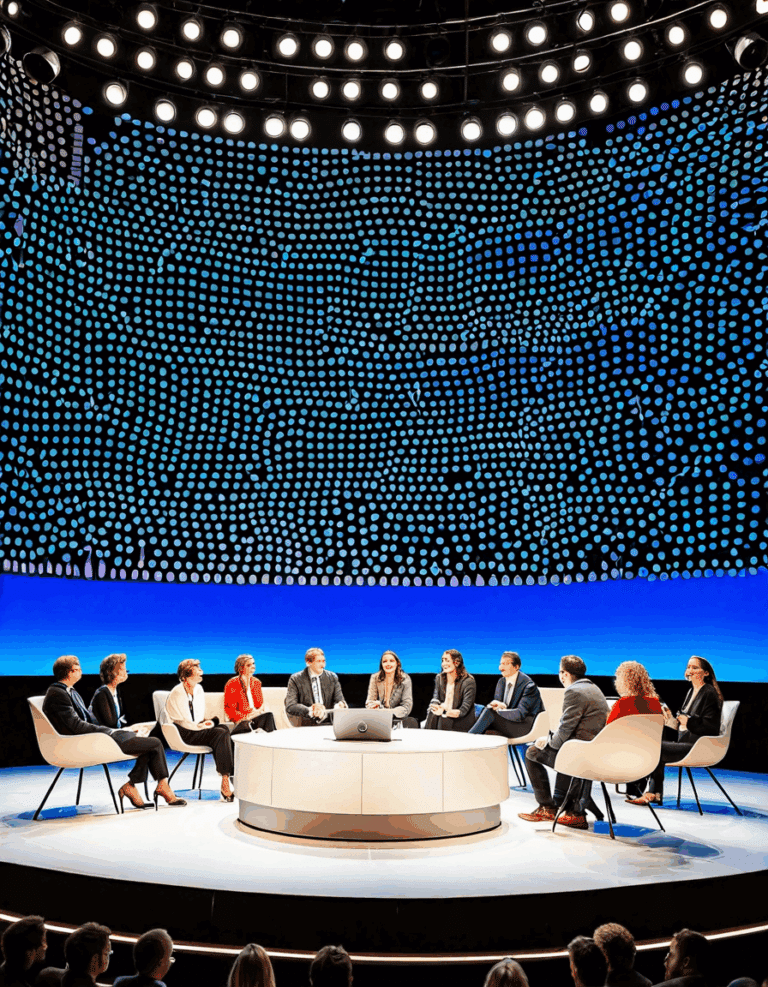Example of Cliches in Communication That Drain Impact
Hello there! If you’re looking to elevate your speaking game and build a powerful personal brand, let’s dive into a topic that can make or break your impact as a speaker: clichés. In the world of professional speaking and business communication, clichés are phrases that have lost their spark, drained of meaning and originality through constant repetition. They can make your message feel stale and disengage your audience faster than you can say “let’s make a deal.” So let’s explore some examples of clichés, understand their effects, and discover how to revitalize our communication strategies!

Top 7 Examples of Clichés That Diminish Your Message

1. “Think Outside the Box”
Example of a Cliché Sentence: Too often, I hear speakers urging their audience to “think outside the box,” as if that alone will spark creativity.
Impact: The phrase has become so tiresome that it often earns eye rolls instead of igniting inspiration. To inject genuine creativity into your message, chase alternative phrases like “innovate with purpose” or “reimagine the possibilities.” These expressions can evoke thought-provoking insights and help your audience feel more connected to the concept of originality.
2. “At the End of the Day”
Example of a Cliché: Many speakers load their speeches with “at the end of the day” to summarize core ideas.
Impact: This phrase tends to disengage listeners, hinting at a cliché-driven transition that feels old and worn out. Replace it with something more engaging, such as “Ultimately, what matters is…” This not only feels fresher but also holds the audience’s focus till the very end.
3. “Win-Win Situation”
Example of a Cliché: The term “win-win situation” is often used to describe collaborative efforts but has become a hollow expression.
Impact: It can make your message sound generic or insipid. Instead, dive deep to articulate specific benefits for each party involved: “Both partners stand to gain by…” This tactic promotes deeper engagement and clarifies the advantages of collaboration.
4. “Reach Out”
Example of a Cliché Sentence: The phrase “reach out” is a classic that businesses use to encourage connection with colleagues or clients.
Impact: While intended to foster approachability, it feels insincere and detached. Creating a warm, engaging atmosphere can be achieved by saying, “Let’s connect personally,” inviting genuine interactions.
5. “Game Changer”
Example of a Cliché: Describing a new initiative or product as a “game changer” has become common, but it rings hollow nowadays.
Impact: While it suggests innovation, it often seems exaggerated and can diminish authenticity. Instead, focus on describing the unique qualities and tangible benefits: “This approach revolutionizes how we tackle challenges by…” This specificity breaks the cliché mold and offers depth to your narrative.
6. “Push the Envelope”
Example of a Cliché: When speakers use the phrase “push the envelope,” they claim to take risks or innovate.
Impact: Unfortunately, the phrase is often perceived as empty bravado. Opt for an inspiring phrase: “We’re exploring new frontiers in…” This approach can convey authenticity and encourage confidence in your vision.
7. “The Bottom Line”
Example of a Cliché: Commonly used to assert conclusions, “the bottom line” can feel lazy or overly simplistic.
Impact: This jargon may trivialize the complexities of an issue. Instead, try something along the lines of, “The key takeaway to consider is…” This invites your audience to engage in deeper contemplation and respect for your analysis.

Revitalizing Your Messaging: Moving Beyond Clichés
Incorporating fresh language instead of clichéd expressions can immensely improve your ability to resonate. Utilizing specific, clear terms grounded in real-world experiences—ideally backed by data or compelling stories—invites your audience into a richer narrative.
As speakers and business leaders, we must continue refining our language. Regularly assessing the words we use can prevent us from falling into the cliché trap. This shift in thinking will facilitate thoughtful dialogue, ensuring your message maintains its intended potency.
Remember: Every word matters. When you’re Preparing For a presentation, ditch the clichés that dilute your impact and opt for words that captivate and motivate.

Final Thoughts: Crafting a Unique Voice
As we forge ahead into 2024, the challenge remains clear: create messages that resonate beyond the noise. This means recognizing the clichés that dilute our impact and transforming them into vibrant, evocative language that captivates audiences.
A powerful speaker does more than just share facts; they inspire emotions, motivate actions, and introduce change through their words. So now it’s your turn: break free from the confines of clichés and refine your speech to resonate authentically. Whether you’re looking to find speaking Opportunities or seeking motivational speech training, embracing originality in your communication is key to thriving in the competitive realm of public speaking.
Let the wise words of Taylor Swift resonate: it’s your moment to shine, just like her Eras Tour that captivated millions. Don’t settle for the ordinary; strive for the extraordinary, and you’ll transform your speaking career. So, let’s get to work, and remember—your message matters!
Explore more insights to refine your skills, and if you’re looking for specific training in mastering impactful talks, consider Ted talk training to elevate your proficiency. And if you’re wondering about the economic climate, check out the implications of why interest rates are going up—it all affects your business narrative!
Never forget, your unique voice has the power to build a brand that resonates—just like the thriving community of Nation milford. So, get out there, speak your truth, and leave the clichés behind! You’ve got this!

Engaging Fun Trivia: Examples of Cliches That Drain Meaning and Impact
The Power of Expression
Cliches are a slippery slope in communication. They creep into our conversations, dulling the impact of our words. Did you know that the term nappy headed Hos became a cultural reference due to its controversial backdrop? This phrase serves as a glaring example of how language can be used carelessly, losing its potency over time. It’s funny how some phrases generalize and lose their significance, making them less effective as we engage in discussions, right?
When we look at classic sayings like “the early bird gets the worm”, we’re faced with the reality that these words have lost their spark. They’ve been thrown around so often that their original punch is gone. Speaking of losing appeal, actress Madison Riley has talked about wanting to steer clear from cliches in her own dialogue, emphasizing a fresh take on speaking that resonates with her audience. She knows how crucial it is to keep discussions lively and relevant!
Why Cliches Matter
Cliches drain the color from our speech; they become background noise in a world craving authentic connection. It’s interesting to consider how language evolves—what once felt fresh can become stale quicker than you think. For instance, there’s a lot of chatter in business circles about avoiding terms that have become hackneyed like “thinking outside the box.” Just like in any good conversation, originality breathes life into our exchanges.
There’s a saying that familiarity breeds contempt, and that rings true in language too. When you hear the phrase “time will tell,” how often do you feel anything but indifference? In today’s rapid-fire environment, standing out requires creativity and authenticity, steering clear of the same old, same old. Embracing this change can lead to more meaningful interactions and genuine connections that are far more impactful than the cliched alternatives we’ve grown tired of. What do you think? Isn’t it exciting to challenge the norms and capture attention with your own unique expressions?

What is an example of a cliché?
A cliché is a phrase that’s been said so many times it’s lost its punch, like “clear as day.” It’s just one of those sayings that everyone knows but hardly ever puts any real thought into.
What are some common clichés?
Common clichés include phrases like “the grass is always greener on the other side” or “time heals all wounds.” These are expressions we’ve heard a million times, and they don’t really pack the same meaning anymore.
What is an example of an overused cliché?
An example of an overused cliché is “a labor of love.” It’s said so often that it now feels bland and uninspired, making it tough to connect with the true effort behind someone’s work.
What is cliché in sentence example?
If you say, “It was a match made in heaven,” that’s a cliché in action. These types of phrases serve as shorthand for an emotional response but don’t offer any new insight.
What are the three types of clichés?
The three types of clichés are verbal clichés (overused phrases), visual clichés (common imagery), and situational clichés (predictable plots or scenarios). They all reflect ideas or expressions that have lost their originality.
What is a cliché thing?
A cliché thing is something that’s predictable or too familiar, like a romantic dinner with candlelight and soft music that feels more like a script than a real experience.
What is a cliché thing to say?
A cliché thing to say might be “it’s better to have loved and lost than never to have loved at all.” It sounds nice but isn’t always true for everyone.
What are some fantasy clichés?
In fantasy, clichés can include tropes like “the chosen one” or “a brave knight saving a princess.” These are familiar storylines that pop up time and again in different tales.
Are stereotypes clichés?
Stereotypes can definitely be clichés. When we overgeneralize groups of people, those stereotypes become tired sayings that don’t really represent individual experiences.
What are meaningless clichés?
Meaningless clichés are phrases that have lost substantiation, like “love is forever” or “he’s worth his weight in gold.” They’ve been used so much that they don’t resonate deeply anymore.
What is cliché for kids?
For kids, a cliché could be explained as something that’s been repeated too often, like saying “don’t judge a book by its cover” when it’s something everyone kind of already knows.
What are clichés in movies?
Clichés in movies are those predictable plot twists and character types that everyone expects, like the hero who triumphantly overcomes incredible odds to save the day.
What are 10 clichés?
Ten clichés you might hear often include: “Right as rain,” “At the end of the day,” “Only time will tell,” “Like a kid in a candy store,” “The ball is in your court,” “Bigger and better things,” “Caught between a rock and a hard place,” “All that glitters is not gold,” “Easy as pie,” and “Practice makes perfect.”
Which phrase is an example of a cliché?
A phrase like “to let the cat out of the bag” is an example of a cliché. It’s short and has been around so long that it’s become a common way to say someone spilled the beans.
What is considered a cliché?
What’s considered a cliché is any expression that’s widely used and has lost its original meaning, making it feel unoriginal or trite.
How to know if something is cliché?
If you’re wondering if something is cliché, think about whether you’ve heard it way too many times or if it feels predictable or safe. If it does, you’re likely looking at a cliché.
What is cliché for kids?
For kids, you can describe a cliché as a phrase or expression that’s been repeated so much, it’s like a worn-out toy—it can be fun, but it doesn’t surprise anyone anymore.
What is an example of a cliché in Romeo and Juliet?
In “Romeo and Juliet,” the phrase “star-crossed lovers” is a cliché, as it’s used often to describe doomed romances, making it feel less special or unique.
What is the difference between a phrase and a cliché?
The difference between a phrase and a cliché is mainly in freshness. A phrase can be new or specific, while a cliché is a once-creative idea that’s been recycled so much that it’s lost its original meaning and impact.









